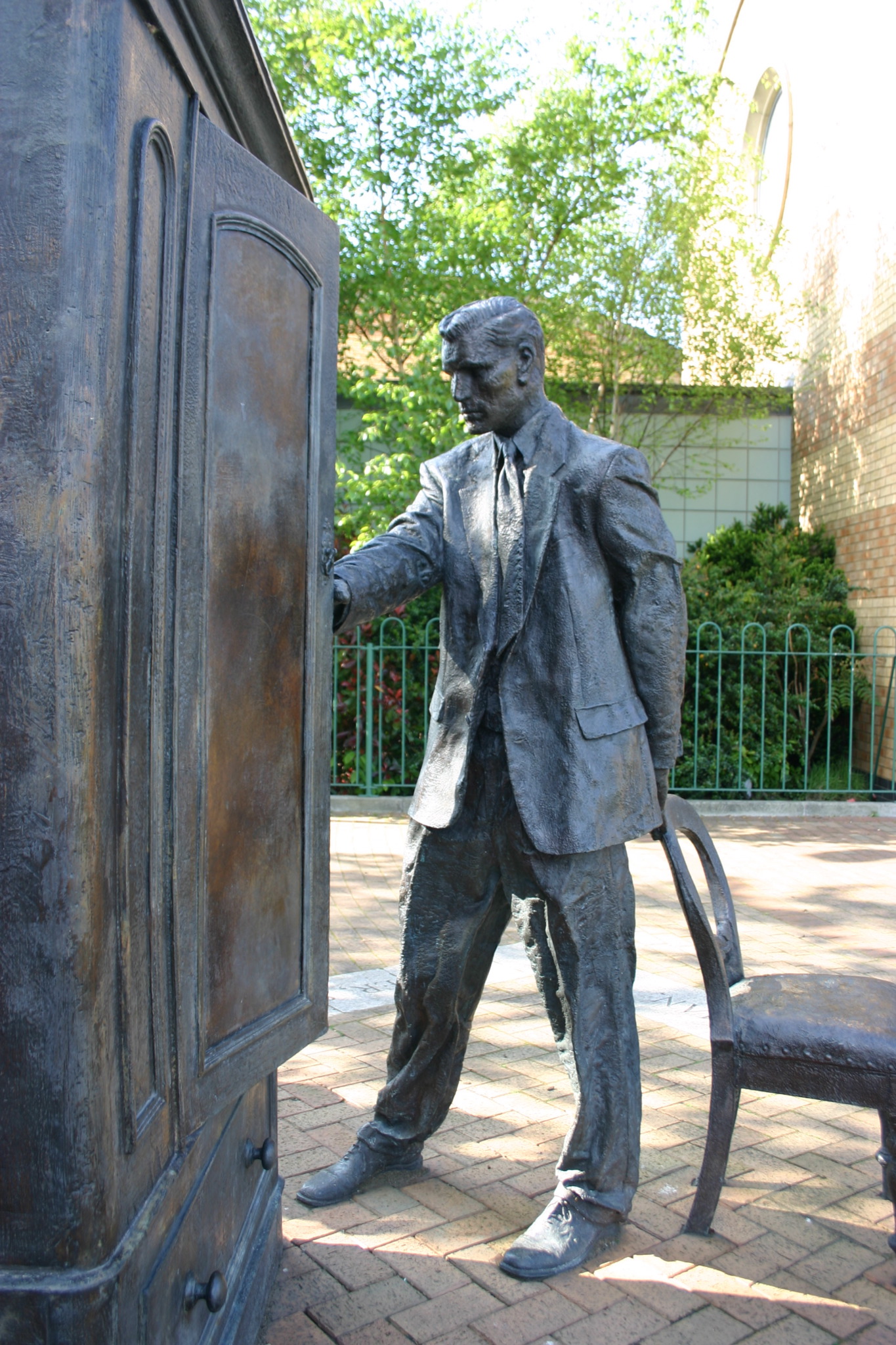(Előszó); ford. Várhidi Gyula
C. S. Lewis híres idézetei
használjuk míndkettőre; de ha azt gondolnánk, hogy ezért mindkettőnek ugyanolyannak kell lennie, akkor akár azt is gondolhatnánk, hogy a tér nagysága és Isten nagysága ugyanaz. Valójában oly nagy a különbség a biológiai élet és a szellemi élet között, hogy különböző néven fogom őket nevezni. A biológiait, amely a természet útján jut el hozzánk, s amely (mint minden a természetben) hajlamos az elfogyásra és a pusztulásra, úgyhogy csak a természettől levegő, víz, élelem, stb. alakjában vett állandó támogatással tartható fenn, „Biosznak” nevezem. A szellemi életet, amely Istenben van meg öröktől fogva, s amely az egész természetes világot alkotta, „Zoénak” hívom. A Biosz természetesen mutat bizonyos homályos vagy jelképes hasonlóságot a Zoéhoz, ez azonban csak olyan hasonlóság, mint ami egy fénykép és az általa ábrázolt hely, szobor vagy ember között van. Az az ember, aki a Biosz állapotából a Zoé állapotába kerül, oly nagy változáson menne át, mintha egy szobor faragott kőből valódi emberré válna. És pontosan ez a kereszténység lényege. A világ egy nagy szobrászműhely. Mi vagyunk a szobrok, és az a hír járja a műhelyben, hogy némelyek közülünk egy napon életre fognak kelni.
Keresztény vagyok!; ford. Lukácsi Huba
(1. f.: Az emberi természet törvénye - a jó és a rossz); ford. Várhidi Gyula
C. S. Lewis: Idézetek angolul
“Integrity is doing the right thing, even when no one is watching.”
Not found in Lewis's works.
"Integrity means doing the right thing at all times, without hesitation" is found in a 1943 syndicated newspaper column. Elsie Robinson, "Listen, World!" https://www.newspapers.com/newspage/58360960/, Evening News (Harrisburg, PA), 1943-02-24, p. 10.
"Integrity means doing the right thing even when no one is there to judge" is found (unattributed) in the 1965 Journal of Clinical Psychology https://books.google.com/books?id=9rm1AAAAIAAJ&dq=%22integrity%22+%22doing+the+right+thing%22&focus=searchwithinvolume&q=%22doing+the+right+thing%22.
The quote became attributed to C.S. Lewis by 2012 https://books.google.com/books?id=XH-1TURLaf4C&pg=PT154&dq=integrity+%22even+when%22+%22c+s+lewis%22&hl=en&sa=X&ved=0ahUKEwi6x9XznoTKAhUKymMKHdoKCKoQ6AEIHTAA#v=onepage&q=integrity%20%22even%20when%22%20%22c%20s%20lewis%22&f=false.
Misattributed
“Eating and reading are two pleasures that combine admirably.”
Surprised by Joy (1955)
“Try now to answer my third riddle. By what rule to you tell a copy from an original?”
Pilgrim’s Regress 52
The Pilgrim's Regress (1933)
The World's Last Night (1952)
“I can't imagine a man really enjoying a book and reading it only once.”
Letter to Arthur Greeves (February 1932) — in They Stand Together: The Letters of C. S. Lewis to Arthur Greeves (1914–1963) (1979), p. 439
“You are never too old to set another goal, or to dream a new dream.”
Unknown, but also attributed to Les Brown, a motivational speaker. Commonly attributed to C.S. Lewis, but never with a primary source listed.
Misattributed
"Bulverism" (1941)
Forrás: That Hideous Strength (1945), Ch. 7 : The Pendragon, section 2
"Christian Apologetics" (1945), p. 92
God in the Dock (1970)
I cried. 'I am caught by the morning and I am a ghost.'
Forrás: The Great Divorce (1944–1945), Ch. 14
“You don’t have a soul. You are a soul. You have a body.”
Commonly attributed to Mere Christianity, where it is not found. Earliest reference seems to be an unsourced attribution to George MacDonald in an 1892 issue of the Quaker periodical The British Friend.
Misattributed
Változat: You don’t have a soul. You are a soul. You have a body.
Book II, Chapter 5, "The Practical Conclusion"
Mere Christianity (1952)
The World's Last Night (1952)
“Courtship is the time for sowing those seeds which will grow up ten years into domestic hatred.”
Letter XXVI
The Screwtape Letters (1942)
Book III, Chapter 4, "Morality and Psychoanalysis"
Mere Christianity (1952)
Book IV, Chapter 9, "Counting the Cost"
Mere Christianity (1952)
Book III, Chapter 6, "Christian Marriage"
Mere Christianity (1952)
“Reality is harsh to the feet of shadows.”
Forrás: The Great Divorce (1944–1945), Ch. 5
The Problem of Pain (1940)
Változat: "Atheists express their rage against God although in their view He does not exist."
“There was a boy called Eustace Clarence Scrubb, and he almost deserved it.”
The Voyage of the Dawn Treader (1952), Ch. 1
The Chronicles of Narnia (1950–1956)
